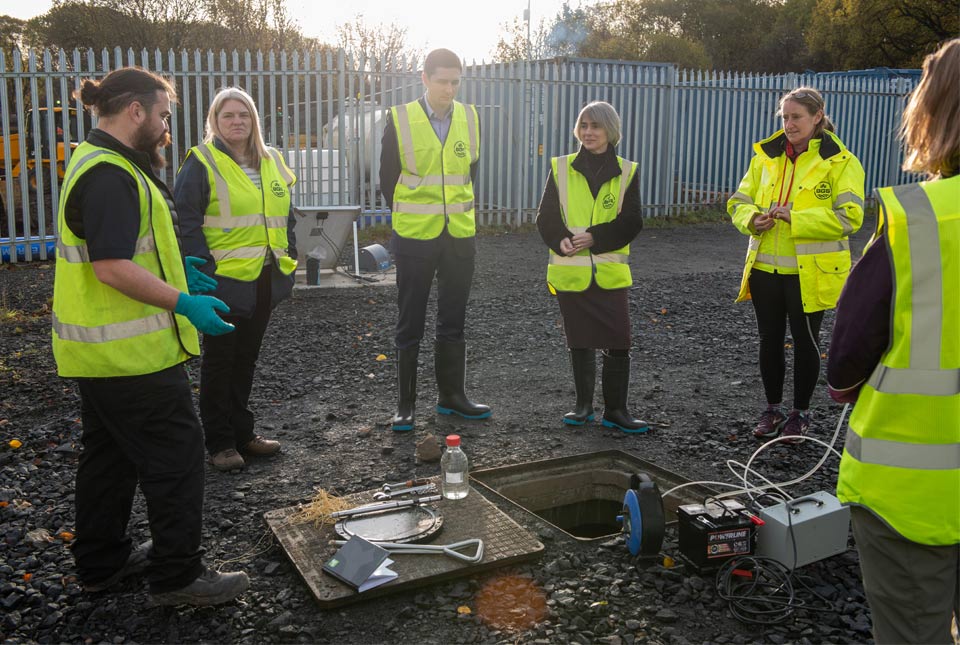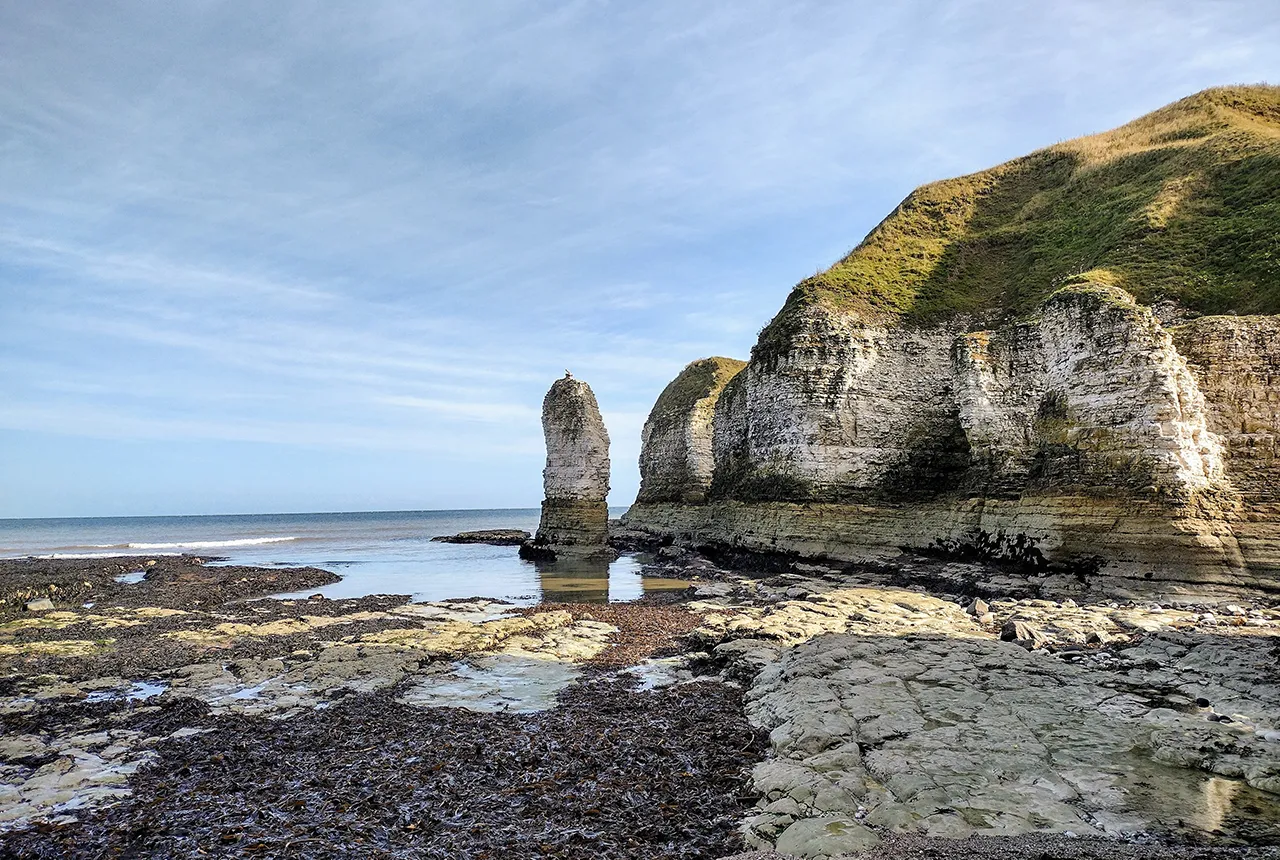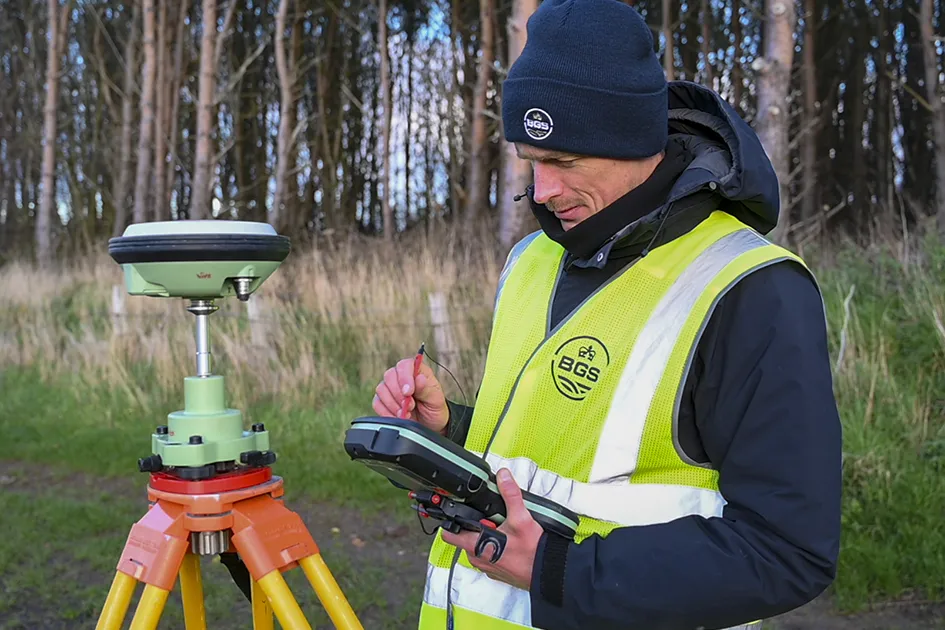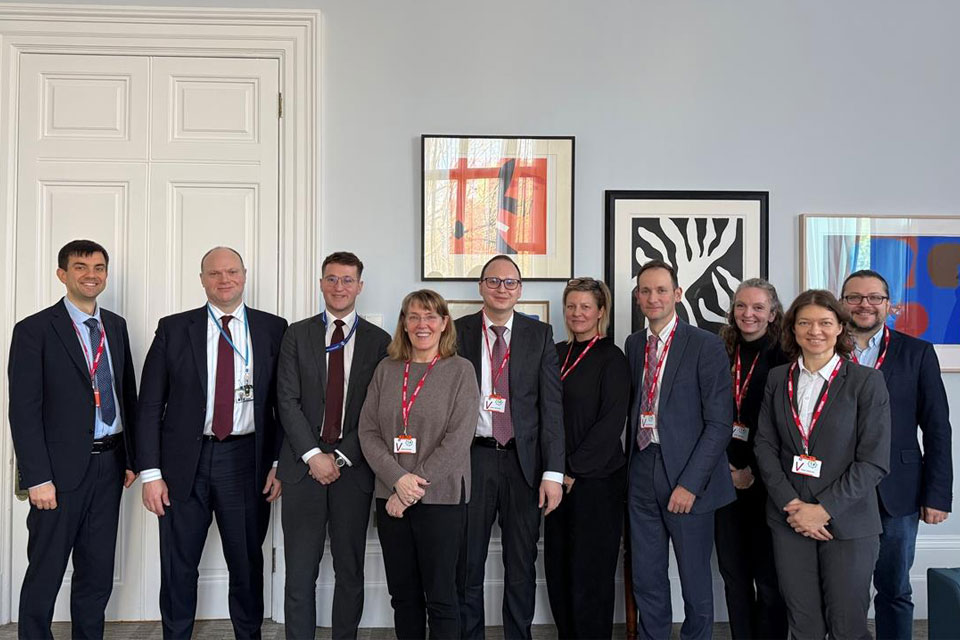Prof Dame Ottoline Leyser visits Glasgow underground observatory
The Glasgow Observatory provides unprecedented access to the subsurface and will fill in the knowledge gaps around geothermal energy.
12/11/2021 By BGS Press
Prof Dame Ottoline Leyser, chief executive of UK Research and Innovation (UKRI), visited the Glasgow geoenergy observatory this week.
The Glasgow Observatory provides scientists and researchers with unprecedented access to the subsurface and will fill in the knowledge gaps around geothermal energy. The site comprises 12 boreholes, which range from 16–199 m deep and are fitted with hundreds of state-of-the-art sensors.
Glasgow, the host of COP26, is also home to part of the UK Geoenergy Observatories project.
The 12 boreholes here are generating data that will help scientists around the world better understand geothermal energy. This will play a key role in meeting our net zero targets by decarbonising our energy supply.
Prof Dame Ottoline Leyser, chief executive, UKRI.


Take a virtual tour of the Glasgow Observatory. BGS © UKRI.
Dame Ottoline was given a tour of the site by BGS’s Dr Tracy Shimmield and was shown a demonstration of how water samples are collected from the boreholes.
The Glasgow Observatory is already producing valuable data. We know the temperature of the water below the surface and that the mine workings are connected.
This will help shine light on whether the towns and cities around the world that sit on top of old mine workings could use that resource to power their homes and businesses.
Dr Tracy Shimmield, BGS.
While a handful of small-scale geothermal energy projects have been developed in the UK to date, wider adoption has lagged.
To provide sustainable and economically viable geothermal energy, we need fundamental information on how the chemical, physical, water and microbiological subsurface changes when we extract or store heat. This data is needed to optimise extraction of heat and inform regulators. We also need to be able to test and demonstrate new technologies.
The UK Geoenergy Observatories will provide us with infrastructure to monitor and analyse subsurface processes and test technologies.
Prof Zoe Shipton, chair of the UK Geoenergy Observatory’s science advisory group
The UK Geoenergy Observatories in Glasgow and Cheshire represent a £31 million investment by the UK Government through the Department for Business, Energy and Industrial Strategy (BEIS). They were commissioned by UK Research and Innovation’s (UKRI) Natural Environment Research Council (NERC) and are delivered by BGS, which runs the sites and manages the data.
Relative topics
Related news

Funding awarded to map the stocks and flows of technology metals in everyday electronic devices
12/02/2026
A new BGS project has been awarded Circular Electricals funding from Material Focus to investigate the use of technology metals in everyday electrical items.

New UK/Chile partnership prioritises sustainable practices around critical raw materials
09/02/2026
BGS and Chile’s Servicio Nacional de Geología y Minería have signed a bilateral scientific partnership to support research into critical raw materials and sustainable practices.

Extensive freshened water confirmed beneath the ocean floor off the coast of New England for the first time
09/02/2026
BGS is part of the international team that has discovered the first detailed evidence of long-suspected, hidden, freshwater aquifers.

Funding secured to help mitigate ground risk in UK construction sector
05/02/2026
The BGS Common Ground project has been awarded new funding to help unlock the value of ground investigation data.

Can sandstones under the North Sea unlock the UK’s carbon storage potential?
02/02/2026
For the UK to reach its ambitious target of storing 170 million tonnes of carbon dioxide per year by 2050, it will need to look beyond the current well-studied geographical areas.

Quaternary UK offshore data digitised for the first time
21/01/2026
The offshore wind industry will be boosted by the digitisation of a dataset showing the Quaternary geology at the seabed and the UK’s shallow subsurface.

Suite of ten new soil reference materials released
02/01/2026
BGS has a longstanding track record of producing high-quality reference materials and has released ten new soil reference materials.

Perth and Kinross tops the UK’s earthquake activity charts for 2025
29/12/2025
Seismologists at BGS have published data on the number of seismic events over the past 12 months with over 300 earthquakes recorded.

BGS awarded funding to support Malaysia’s climate resilience plan
17/12/2025
The project, funded by the Foreign, Commonwealth & Development Office, will focus on minimising economic and social impacts from rainfall-induced landslides.

New geological maps of the Yorkshire Wolds to better inform groundwater management and policy decisions
17/12/2025
The new mapping provides crucial data on localised geological issues that may assist in protecting water supplies.

‘Three norths’ set to leave England and not return for hundreds of years
12/12/2025
The historic alignment of true, magnetic, and grid north is set to leave England, three years after they combined in the country for the first time since records began.

BGS agrees to establish collaboration framework with Ukrainian government
11/12/2025
The partnership will focus on joint research and data exchange opportunities with Ukrainian colleagues.



